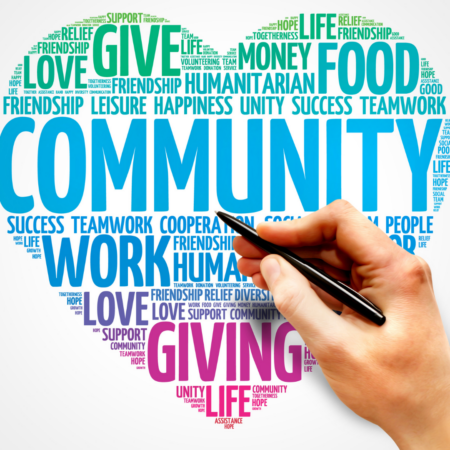Rev. A.J. Galazen, Interim Minister
Years ago, I was a member of a church in a diverse, inner city neighborhood. The location was one of the reasons I had joined. One evening, I attended a meeting of a committee looking to attract new people to the church. We had a lively discussion, and there was a variety of opinions. One man expressed the view that we should not waste our time and energy trying to reach out to the people in the surrounding area. We should focus instead on who “we” are, since “like attracts like”. According to him, “we” were predominately white, highly educated, financially secure, connected to the movers and shakers in the community. That was our place and our calling. We had history on our side. We should be proud of this.
In my soul, I seethed with rage. Although I was white, I was not highly educated, I was not financially secure, I was not connected to the power structures of the city. And beyond that, I was queer, which at the time was not a pleasant topic for most church people. But I was not only concerned with my own situation. This man’s opinion seemed to be a slap in the face to my naïve understanding of what Universalism stood for.
I complained to my mentor, and she asked me, “What did you expect? UU’s have a variety of viewpoints. Did you think that everyone has to agree with everything? What does diversity mean if there is a strict party line to follow? Where was your voice in this discussion?”
She had me there. When confronted by his statement, I had bitten my tongue and said nothing because of my anger. The more I thought about it, the more I realized this man had a point. From his perspective, he saw the church as what it meant to him. Perhaps it was a comfortable place, filled with lofty words and familiar faces. And probably, some beautiful music.
My burgeoning idea of Universalism suddenly became more universal. It was not just about me. It was about how we communicate and learn from each other. Together we become the beloved community. I asked my mentor how was it possible to preach and convince people of anything, while still respecting their sometime divisive opinions?
She told me that she never tries to persuade anyone. She’s concerned with stating the question or problem, studying it from many angles, making an honest observation, and then bringing the community along as witnesses. It’s about showing each other how we come to our own conclusions, not telling people what to think, or what to believe.
Our theme for February is “Beloved Community.”
On Sunday afternoons this month we will have a series of open discussions and brainstorms to build our community. Please attend if you can!
Transitional Conversations: What’s Next? DUUF is beginning the process of transition to the next minister. What decisions need to be made? Who needs to be involved? How does the process work? Bring your comments and your questions on Sunday, February 7 at 2:00 p.m.
Adult Program Team Monthly Meeting. The Adult Program Team includes adult education, social justice, and membership activities. All interested persons are welcome to join the discussion for developing these areas at DUUF. Sunday, February 14 at 2:00 p.m. Pastoral Care Team Monthly Meeting. All are welcome to join us in an open discussion of the ongoing needs of our congregation as we move into a spring bringing both blessings and challenges. Sunday, February 21 at 2:00 p.m.

